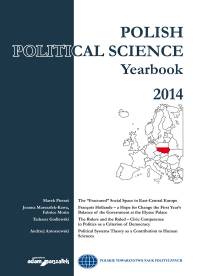A BORDERLAND AND THE LOCAL AUTHORITY
A BORDERLAND AND THE LOCAL AUTHORITY
Author(s): Ewa Ganowicz, Bożena WroniszewskaSubject(s): Governance, Public Administration, International relations/trade
Published by: Wydawnictwo Adam Marszałek
Keywords: borderland; the local authority; border areas; places of power; United Kingdom; Republic of Poland
Summary/Abstract: There is no doubt that the border is a place of power – a local authority. In its essence it involves the existence of a distinct interest in forming a borderland community. This interest is reflected in the institutional form of local government, under which the local authority is exercised. Borderland is always a political force and determines the specificity of power in a given area, often determining systemic solutions in the country. It is obvious that a large role is played by the border strength with which they articulated their needs and the general conditions of political organization within which it operates (system, historical traditions, etc.). In the radically different circumstances, the local government operates in ethnically homogenous Poland. It’s not the borderland who has forced decentralization and the need for efficient governance of new political conditions. The needs of the Borderland, at first loudly articulated, have been met mostly by legislation protecting ethnic and national minorities. However, of significance is the example of the Silesian Autonomy Movement as the identity of the Borderland, which is still not satisfied with his own status. Within the framework of the homogeneous state, there are many opportunities for the borderland to participate in the exercise of local authority. Although the administrative division takes into account the principle of diversity of socio- cultural variety of the country, the administration is a standardized, three-tier system that coexists with government in the area. Each level has a decision-making council or Regional Council in the province and a Board as an executive body. The councils, the Regional Councils and the executive authorities in the municipalities are elected by the local community. Similarly, the tasks are divided equally and harmonized powers, and rules governing the relationship between the administrations in all directions. There is no hierarchical subordination here, the activity is under the protection of the courts of general jurisdiction and is subject to the administrative jurisdiction. The control and supervision of the activities are intended only to verify compliance with the law.
Journal: Polish Political Science Yearbook
- Issue Year: 43/2014
- Issue No: 1
- Page Range: 84-107
- Page Count: 24
- Language: English

